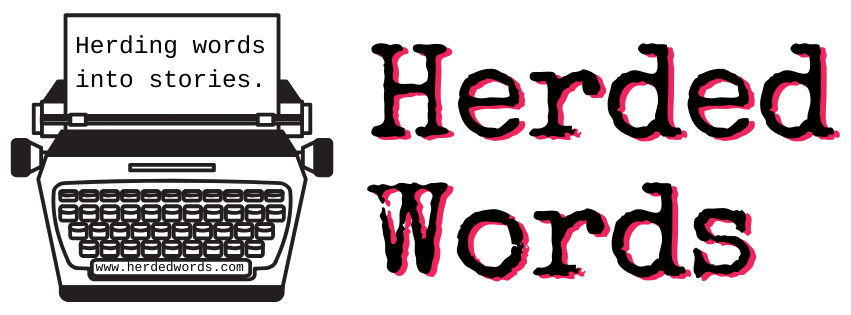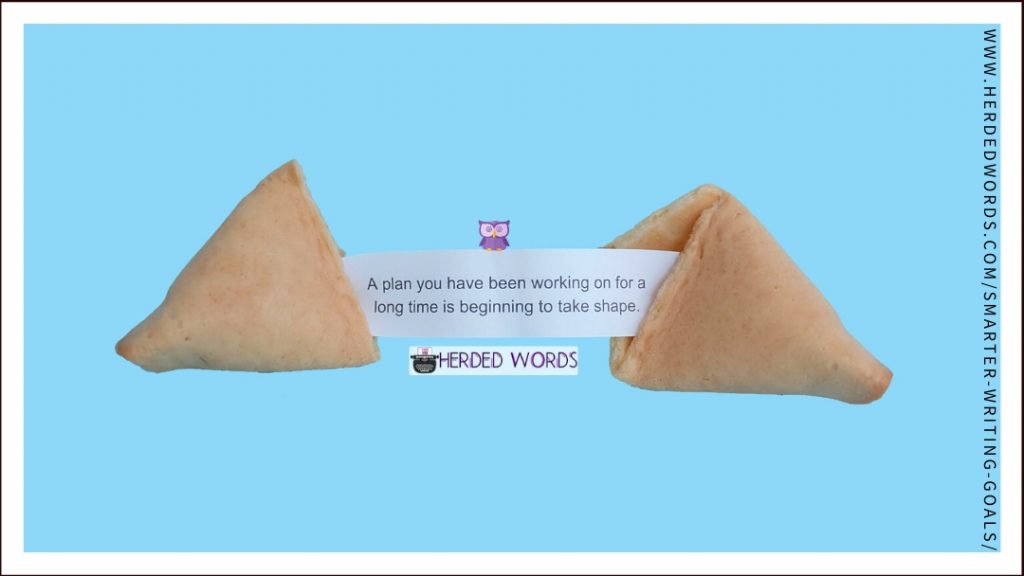
Listen to this post
Herdedwords.com uses affiliate links. This means we receive a commission on the sale of certain items. This is at NO additional cost to you. Visit the policies page to learn more.
If you haven’t set any writing goals, how do you know what you’re working towards? You don’t.
Goals are important because they will help keep you focused on what you actually want.
However, not all goals are good goals. Use this seven-step process to set goals that you can achieve and start crushing your writing dreams!
Table of Contents
Examples of 3 Common Goals
Here are three common goals:
Example: “I want to write a book.”
What’s wrong with this goal: what kind of book? How long? By when? How will you do it? When?
“Write a book” is too vague. This is a dream, not a goal.
Example: “I want to write better characters.”
What’s wrong with this goal: what does better mean? What will you do to make them better? How will you know if you’ve succeeded?
“Better characters” are hard to measure objectively.
Example: “I want to read more.”
What’s wrong with this goal: what does more mean? What do you want to read? When do you want to do this?
This is too vague to be a goal.
How do you fix the problems above? With SMARTER goals of course!
What are SMARTER Goals?
SMARTER is an acronym. Start by setting SMART goals:
- Specific
- Measurable
- Achievable
- Relevant
- Timely
Once you’ve started, you’ll add the -ER:
- Evaluate
- Reward / Redo.
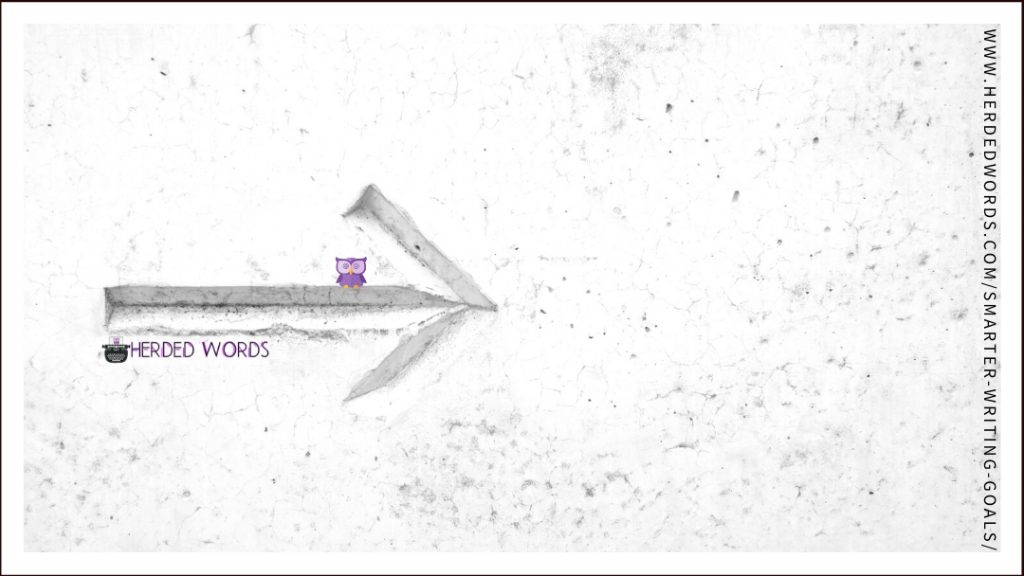
How to Make a Goal Specific
A specific goal must be clearly defined. The goal should be clear, identifiable, and simple. So many goals are vague and it can be surprisingly difficult to be specific.
Example: “I want to write a book.”
Specific: I will write 50,000 words of one story
Example: “I want to write better characters.”
Specific: I will take a course on character development.
Example: “I want to read more.”
Specific: I will read 50 books.
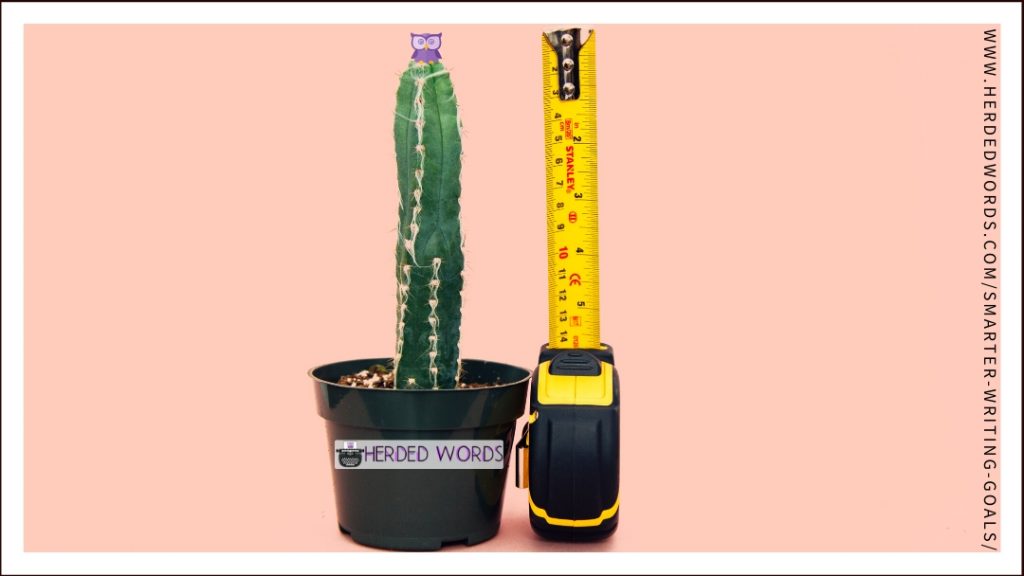
How to Make a Goal Measurable
Measurable means that you can keep track of progress and results (preferably in an objective manner).
If you can’t measure your progress, how do you know if you’re succeeding? This is why measurable is a key factor in goal-setting.
Example: “I want to write a book.”
S: I will write \/ 50,000 words of one story.
Measurable: 500 words a day until I reach
Example: “I want to write better characters.”
S: I will take \/ course on character development.
Measurable: this
Example: “I want to read more.”
S: I will read 50 \/ books.
Measurable: new fiction

How to Make a Goal Achievable
Achievable means that you’re likely to be successful. Basically, you want to set realistic goals. A goal that’s unachievable is worthless.
That’s not to say that your goals can’t be hard, they can be. But if you’re highly unlikely to succeed, you don’t have a goal. You have a wish.
One great way to see if your goal is achievable is to write down all the potential challenges you’ll face. If the list is really long or if the challenges can’t be conquered, you might need to readjust your goal.
Example: “I want to write a book.”
SM: I will write 500 words a day until I reach 50,000 words of one story.
Potential Challenges: working late, writer’s block, laziness
Achievable: I will achieve this by getting up 30 minutes earlier than normal to complete my word count. I will also check-in with my writing partner every day.
Example: “I want to write better characters.”
SM: I will take this course on character development.
Potential Challenges: working late, don’t understand the course, laziness
Achievable: I will achieve this by scheduling time to do the course and nothing else. My friend will also be doing the course so we’ll do it together.
Example: “I want to read more.”
SM: I will read 50 new fiction books.
Potential Challenges: working late, dislike a story, laziness
Achievable: I will achieve this by reading during my lunch breaks.

How to Make a Goal Relevant
Is this goal relevant and appropriate to your life in some way? It doesn’t have to be your current life – it can be relevant to the future life you want to have.
A goal that isn’t relevant to you, is one that you’ll be unlikely to accomplish.
Example: “I want to write a book.”
SMA: I will write 500 words a day until I reach 50,000 words of one story. I will achieve this by getting up 30 minutes earlier than normal to complete my word count. I will also check-in with my writing partner every day.
Relevant: Completing a 50,000-word story would enable me to pursue a writing career. If I can’t complete this first story then being a writer probably isn’t for me.
Example: “I want to write better characters.”
SMA: I will take this course on character development. I will achieve this by scheduling time to do the course and nothing else. My friend will also be doing the course so we’ll do it together.
Relevant: Improving my character development skills will be good for my career as an author.
Example: “I want to read more.”
SMA: I will read 50 new fiction books. I will achieve this by reading during my lunch breaks.
Relevant: As a writer, it’s important that I read.
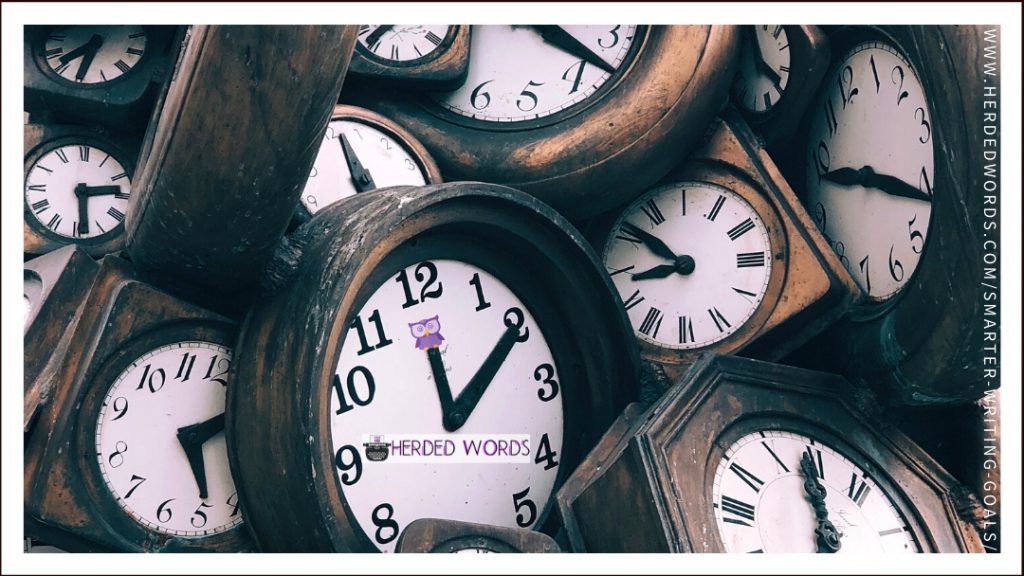
How to Make a Goal Timely
The best goals have a time-frame or time-limit. This way you can easily check your progress and know if you’ve succeeded or failed.
Example: “I want to write a book.”
SMAR: I will write 500 words a day until I reach 50,000 words of one story. I will achieve this by getting up 30 minutes earlier than normal to complete my word count. I will also check-in with my writing partner every day. Completing a 50,000-word story would enable me to pursue a writing career. If I can’t complete this first story then being a writer probably isn’t for me.
Timely: in 4 months
Example: “I want to write better characters.”
SMAR: I will take this course on character development. I will achieve this by scheduling time to do the course and nothing else. My friend will also be doing the course so we’ll do it together. Improving my character development skills will be good for my career as an author.
Timely: for the next 6 weeks.
Example: “I want to read more.”
SMAR: I will read 50 new fiction books. I will achieve this by reading during my lunch breaks. As a writer, it’s important that I read.
Timely: in 2020.
Congratulations, you’ve set a SMART goal. But what happens next? You’ll need to evaluate your progress as you work through the goal. When your time is up, you’ll want to reward yourself and/or redo the goal. Let’s add the -ER to make our SMART goal SMARTER.
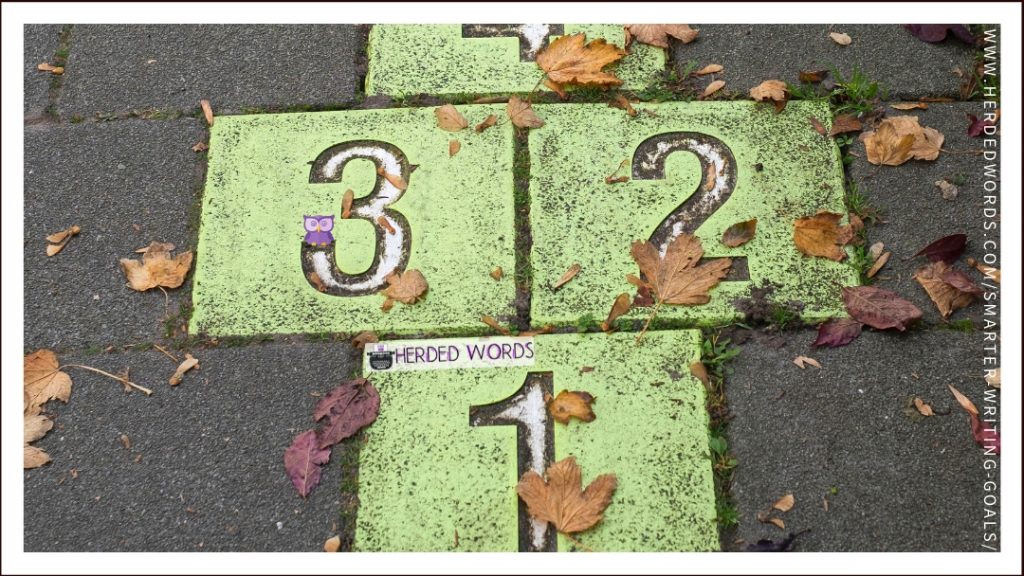
How to Evaluate a Goal
You can’t just set a goal and hope for the best. You need to check on your progress (evaluate it).
If something isn’t working, it’s better to catch that early and adjust the goal than just carry on as is and fail.
Example: “I want to write a book.”
SMART: I will write 500 words a day until I reach 50,000 words of one story in 4 months. I will achieve this by getting up 30 minutes earlier than normal to complete my word count. I will also check-in with my writing partner every day. Completing a 50,000-word story would enable me to pursue a writing career. If I can’t complete this first story then being a writer probably isn’t for me.
Evaluate: I will evaluate my progress in two ways.
– First, if I miss 2 days in a row – are they one-offs (which I built extra time into my time to account for), or is there an unforeseen issue that will affect my goal?
– Second, at the end of every month. If I’ve written 15% more (or less) than I should have, I’ll adjust my goal to reflect that going forward.
Example: “I want to write better characters.”
SMART: I will take this course on character development for the next 6 weeks. I will achieve this by scheduling time to do the course and nothing else. My friend will also be doing the course so we’ll do it together. Improving my character development skills will be good for my career as an author.
Evaluate: At the end of every week I will evaluate my progress to make sure I’ll still complete the course in 6 weeks.
Example: “I want to read more.”
SMART: I will read 50 new fiction books in 2020. I will achieve this by reading during my lunch breaks. As a writer, it’s important that I read.
Evaluate: I will evaluate my reading at the end of every month.

Don’t Forget to Reward Yourself / Redo Your Goals
You’ve come to the end. Did you succeed? Great! Reward yourself (and maybe redo). Did you fail? Should you redo?
You’ll need to evaluate what you want next. Some goals you’re going to redo many times (whether you win or lose), some goals are only going to be done once.
When it comes to rewards, there are many options. You can buy yourself something you want, you can give yourself some “free” time, you can go out and do something alone or with friends.
Example: “I want to write a book.”
SMARTE: I will write 500 words a day until I reach 50,000 words of one story in 4 months. I will achieve this by getting up 30 minutes earlier than normal to complete my word count. I will also check-in with my writing partner every day. Completing a 50,000-word story would enable me to pursue a writing career. If I can’t complete this first story then being a writer probably isn’t for me. I will evaluate my progress in two ways.
First, if I miss 2 days in a row – are they one-offs (which I built extra time into my time to account for), or is there an unforeseen issue that will affect my goal?
Second, at the end of every month. If I’ve written 15% more (or less) than I should have, I’ll adjust my goal to reflect that going forward.
Reward/Redo: When I complete the goal successfully, I’ll reward myself with a themed game night with friends. I’ll also redo the goal but a bit tougher. If I’m not successful, I’ll accept that being a writer isn’t the career for me and move on.
Example: “I want to write better characters.”
SMARTE: I will take this course on character development for the next 6 weeks. I will achieve this by scheduling time to do the course and nothing else. My friend will also be doing the course so we’ll do it together. Improving my character development skills will be good for my career as an author. At the end of every week, I will evaluate my progress to make sure I’ll still complete the course in 6 weeks.
Reward/Redo: When I complete the goal successfully, I’ll reward myself with a new hardcover book. I’ll also sign up for a different writing class. If I don’t succeed, I’ll evaluate what went wrong and try again.
Example: “I want to read more.”
SMARTE: I will read 50 new fiction books in 2020. I will achieve this by reading during my lunch breaks. As a writer, it’s important that I read. I will evaluate my reading at the end of every month.
Reward/Redo: When I complete the goal successfully, I’ll reward myself with a new kindle. If I’m not successful, I’ll donate 50% of my books to a local charity.

From Dreams and Wishes to Goals
Our goals all started as dreams and wishes for the future. Using the SMARTER acronym, we turned them into true goals.
From “I want to write a book,” to

From “I want to write better characters,” to

From “I want to read more,” to

Use this template to create your own SMARTER writing goals anywhere and anytime.

SMARTER GOALS for Everything
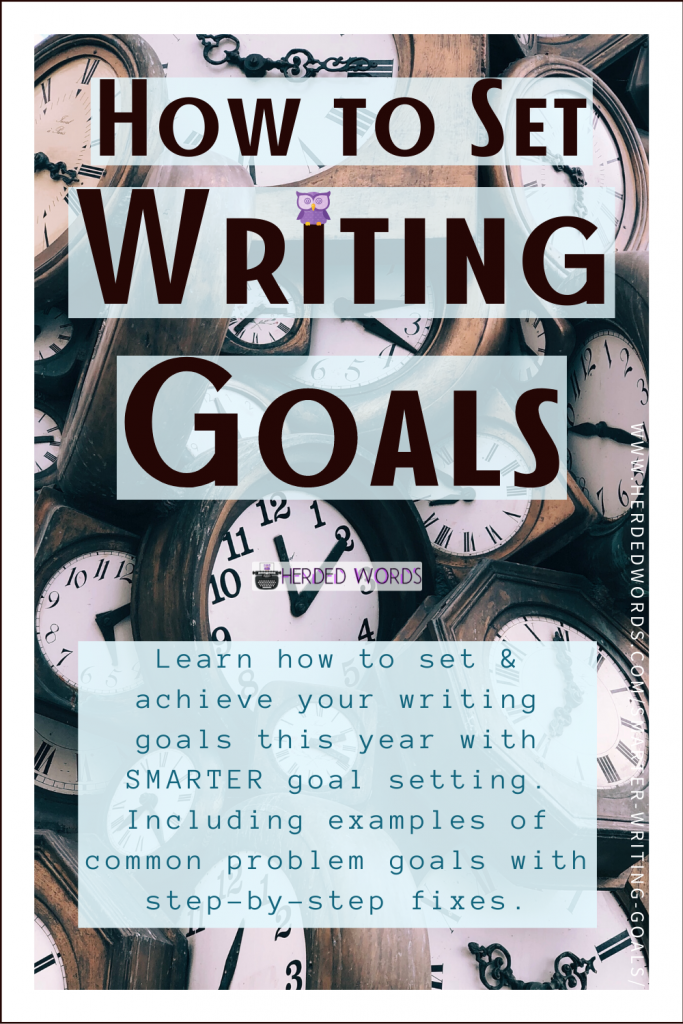
Setting goals is important in all areas of your life. Check out these SMARTER Goals Examples for health, fitness, and other areas of your life.
Now that you have your goals, it’s time to become an idea machine! Check out these 9+ Places to Find Creative Writing Ideas & Inspiration next.
What are your goals? Share your SMARTER Writing Goals in the comments below!
Like this post? Please PIN IT and follow me on social media. Thanks!
